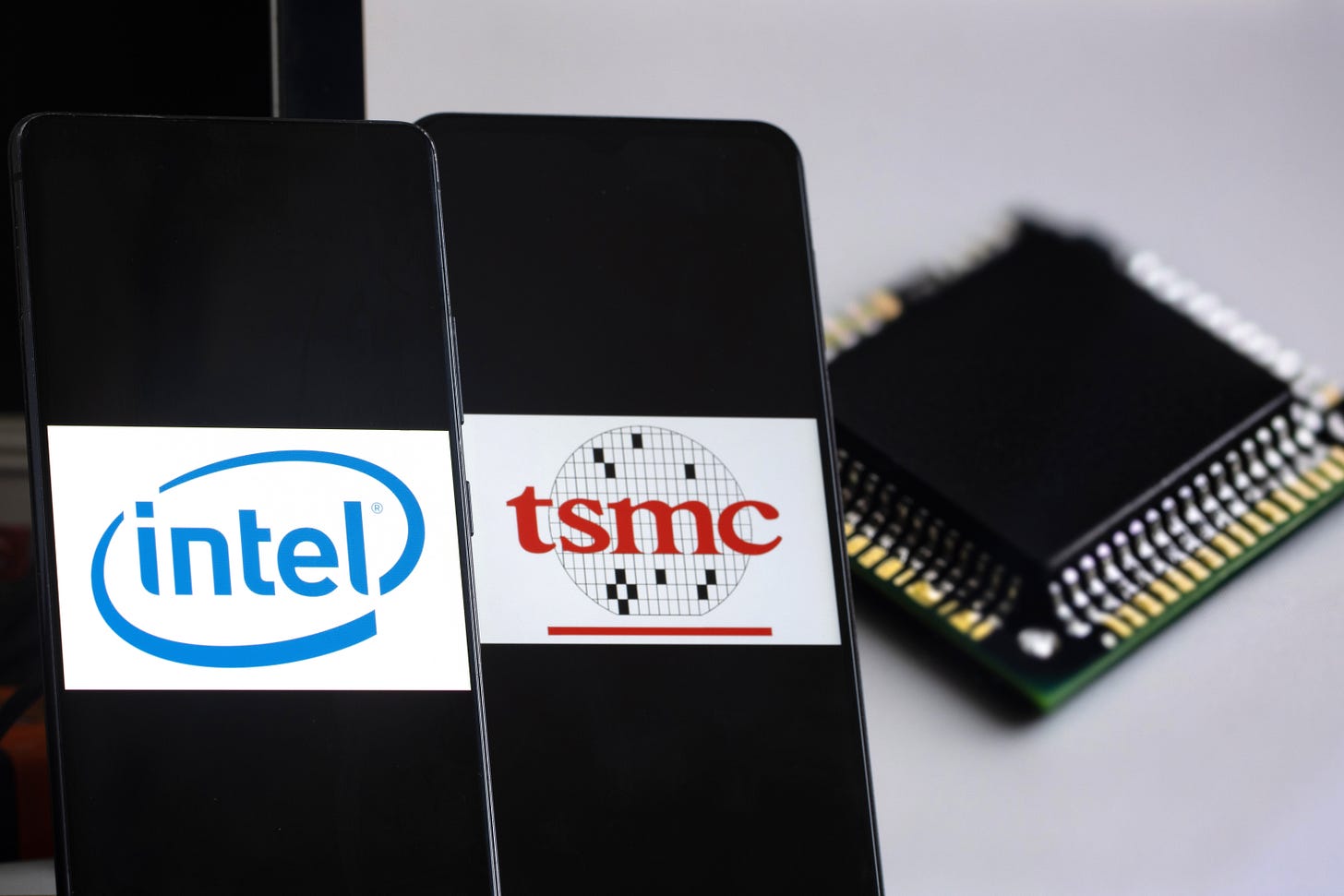Intel in Peril: Trump's CHIPS Act Threat and TSMC's Shadow
Potential cancellation of the CHIPS Act poses an existential threat to Intel's foundry ambitions
Intel must have felt a chill down its spine when President Donald Trump declared in Congress his intention to seek bipartisan support to kill the CHIPS Act, while praising Taiwan Semiconductor Manufacturing Company’s (TSMC) massive $165 billion investment in Arizona.
“Just yesterday, Taiwan Semiconductor, the biggest in the world, announced a $165 billion investment to build the most powerful chips on earth here in the USA,” said Trump. “And we are not giving them any money.” He went on to criticize the CHIPS Act, calling it a “horrible, horrible thing,” claiming that companies “take our money and don’t spend it.” Trump urged Congress to redirect any remaining CHIPS Act funds toward reducing national debt.
While Trump’s comments may have been aimed at scoring political points, they cast doubt on the future of the CHIPS Act—a lifeline for companies like Intel. TSMC has indeed received funding under the CHIPS Act, but Intel's reliance on this program is far greater. Before stepping down, former Intel CEO Pat Gelsinger repeatedly voiced frustration over delays in receiving CHIPS Act funding. Eventually, Intel secured $7.865 billion in revised funding from the Biden administration, with $2.2 billion already allocated for its New Albany project.
Intel’s urgency stems from mounting financial pressures. It is already suspending the construction of several fabs in the United States and overseas. However, the source of cash bleeding is hard to stop. According to Jeff Morrison, a consultant based in Chandler, Arizona, Intel’s 3nm yields are below 25%, with utilization at just 35%. This translates to losses exceeding its annualized depreciation of $12.5 billion. To achieve profitability, Morrison noted that Intel would need a total factory efficiency (TFE) of over 40%, which remains elusive.
TSMC’s ambitious expansion in America further complicates the situation, a commitment urged by political pressure from both sides of the Pacific Ocean. As geopolitical strategist Rocky Uriankhai pointed out in an earlier interview, TSMC’s additional $100 billion investment in Arizona is bad news for Intel. Trump’s boast that this deal will push America’s share of advanced chip production to 40% only adds pressure on Intel and Samsung, whose U.S.-based fabs planned for CHIPS Act incentives are still under construction.
Even if Intel were to spin off its foundry services—a move some analysts suggest—it would face significant challenges finding buyers, given its current struggles with yields and profitability. “It’s going to be near impossible for Intel to sell its Foundry Services,” observed Morrison.
If the CHIPS Act is canceled as Trump proposes, Intel could find itself in dire straits without subsidies to sustain its foundry operations. This would have broader implications for U.S. national security and resilience, as Intel remains a critical supplier for Pentagon contracts, including a $3.5 billion award last year.
While TSMC's investment cements America’s position as a global leader in advanced chip manufacturing, the potential cancellation of the CHIPS Act poses an existential threat to Intel's foundry ambitions and its role in safeguarding U.S. technological sovereignty. Policymakers must weigh the risks carefully—balancing fiscal concerns with the need to secure America's semiconductor supply chain—before making decisions that could reshape the industry and jeopardize national security.




Haha, you should never trust a businessman. The contract can be changed or renegotiated anytime!😱😭